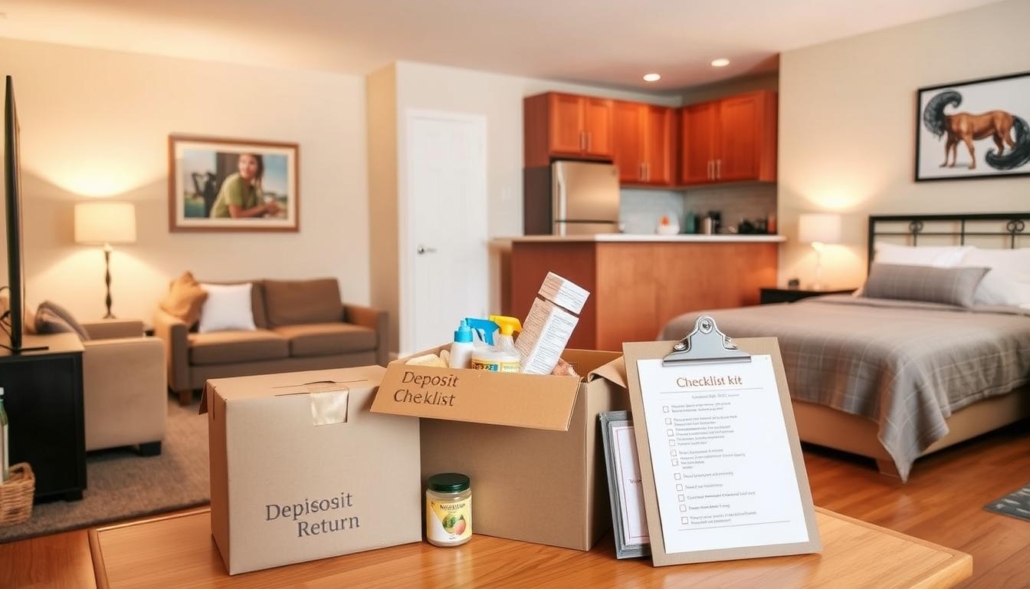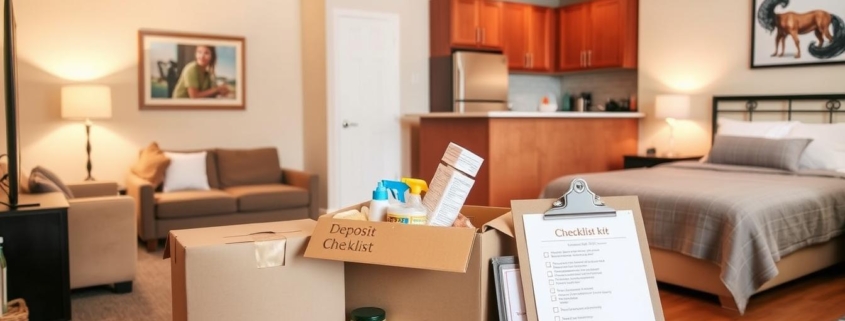Moving Out of a rented property in Halifax? Here’s How to Guarantee Your Damage Deposit Return
Are you looking for a property manager who can provide peace of mind and shield you from unnecessary complications? You can enjoy a stress-free experience when we work together.
A tenant faced a situation where their property management company refused to refund their damage deposit, a sum of up to $2,000, and issued an additional bill for repairs without clear justification. This left the tenant grappling with both a significant financial loss and a lack of clarity about the alleged damages. Fortunately, they challenged the claims through an Order of the Residential Tenancy (ORT) and emerged victorious, recovering their deposit.
Moving out of a rented property in Halifax can be stressful, especially when it comes to getting your damage deposit back. Many tenants face issues with their property management companies or landlords. They might try to withhold the deposit without a good reason.
According to Nova Scotia law, tenants have the right to get their deposit back. This is if they follow the right steps and leave the property in good shape.

To make sure you get your deposit back, it’s key to know your rights and follow the right move-out steps. This includes knowing the maximum legal deposit amounts and your rights under Nova Scotia law. By doing these things, you can have a smooth process and get your full deposit back, which can be up to $2000.
Key Takeaways
- Understand your tenant rights to guarantee your damage deposit return
- Follow the correct move-out procedures for a smooth process
- Know the maximum legal deposit amounts to avoid disputes
- Leave the property in good condition to ensure your damage deposit return
- Be aware of your rights under Nova Scotia law when moving out of a rented property in Halifax
- Get your full Halifax rental deposit back by following the correct procedures
Understanding Your Damage Deposit Rights in Halifax
When you rent a place in Halifax, knowing your damage deposit rights is key. A damage deposit is money you pay to cover any damage during your stay. In Nova Scotia, tenant rights are protected, and the maximum deposit is one month’s rent.
If you leave the place in good shape and follow the right steps, you can get your deposit back. It’s important to understand your rights and duties as a tenant. This way, you can avoid problems with your landlord or property manager. Under damage deposit laws in Nova Scotia, you’re entitled to a refund, minus any deductions for damages or unpaid rent.
What is a Damage Deposit?
A damage deposit is a security payment made by the tenant. It covers any damage or loss during your stay, like broken appliances or holes in the walls.
Maximum Legal Deposit Amounts
In Nova Scotia, the maximum deposit is one month’s rent. This means landlords or property managers can’t ask for more than that.
Tenant Rights Under Nova Scotia Law
Under Nova Scotia law, you have the right to a deposit refund, minus any deductions for damages or unpaid rent. You also have the right to challenge any deductions made by your landlord or property manager. The Nova Scotia law ensures tenants are treated fairly and protects them from unfair practices.
By knowing your damage deposit rights in Halifax, you can make your move-out process easier. Always follow the right steps and understand your rights under Nova Scotia law. This way, you can avoid any disputes or problems with your landlord or property manager.
Essential Documentation for Moving Out of a Rented Property in Halifax
When you move out of a rented place, having the right papers is key. It helps make the move smooth and ensures you get your deposit back. As a tenant, you must give written notice to your landlord and make sure the place is clean and in good shape.
Tenant responsibilities also mean taking photos and videos of the property before you leave. This proof is important in case of any disagreements or damage claims. Keep all emails, letters, and phone calls with your landlord or property manager as records.
Here are some important documents you’ll need when moving out:
- A written notice to your landlord or property management company
- A copy of your lease agreement
- Photos and videos of the property before moving out
- A record of any damages or issues with the property
Having these documents helps you meet your tenant responsibilities and protects you from disputes. Always check your lease agreement to know what’s expected of you and what documents you need when moving out of a rented property.
It’s also wise to keep all papers from your tenancy, like receipts for repairs. This is in case you need to show proof of your tenant responsibilities. Being organized and having the right documents makes moving out less stressful and easier.
Property Inspection Checklist and Move-Out Procedures
A detailed property inspection checklist is key when moving out in Halifax. It helps tenants spot any damage or issues. This way, they can fix them before the final check.
The pre-move-out inspection is a vital step. It lets tenants solve any problems before the final look.
Some important things to check in a property inspection checklist are:
- Cleaning the appliances, floors, and walls
- Looking for any damages or issues with the property
- Inspecting for holes in the walls, broken appliances, and dirty or stained carpets
By using a detailed property inspection checklist and move-out procedures, tenants can make the move smoother. They also have a better chance of getting their deposit back. Remember, a pre-move-out inspection is crucial to find and fix any issues before the final check.
Dealing with Property Management Companies and Landlords
When you deal with property management companies and landlords, it’s key to keep communication open and respectful. Follow good communication practices, like writing down all requests and concerns. Also, keep a record of all your talks, including dates, times, and what was said.
Good communication can stop disputes and help solve problems smoothly. Here are some tips for talking to property management companies and landlords:
- Be clear and to the point in your messages
- Give all the details and proof you have for your requests or worries
- Get back to messages and requests quickly
If you face a dispute, you can get help from the Residential Tenancies Board. They offer a fair way to solve problems between tenants and landlords or property management companies.
By using good communication practices and getting help when you need it, tenants can handle dealing with property management companies and landlords confidently. Always aim for respectful and professional communication to have a good experience.
Conclusion: Securing Your Deposit Return Successfully
Moving out of a rented property in Halifax needs careful planning and knowing your rights. Work with your property manager, follow the right steps and stay updated to get your deposit back. It’s important to talk clearly with the property manager or landlord, keep good records, and use the Residential Tenancies Board’s help if you need it.
To get your deposit back, be proactive and handle problems quickly. Stand up for your rights as a tenant. With the right steps and focus, you can avoid arguments and leave your rental in Halifax with your deposit in hand. Stay informed, stay organized, and ask for help when you need it.
Goodluck is a highly regarded real estate expert in Halifax, Nova Scotia, known for his deep understanding of the local property market. His expertise has earned the trust of both landlords and tenants, making him a go-to professional in the industry. Whether you're looking for a reliable property manager in halifax or need assistance finding the perfect rental, Goodluck is here to make the process seamless and stress-free.




Leave a Reply
Want to join the discussion?Feel free to contribute!